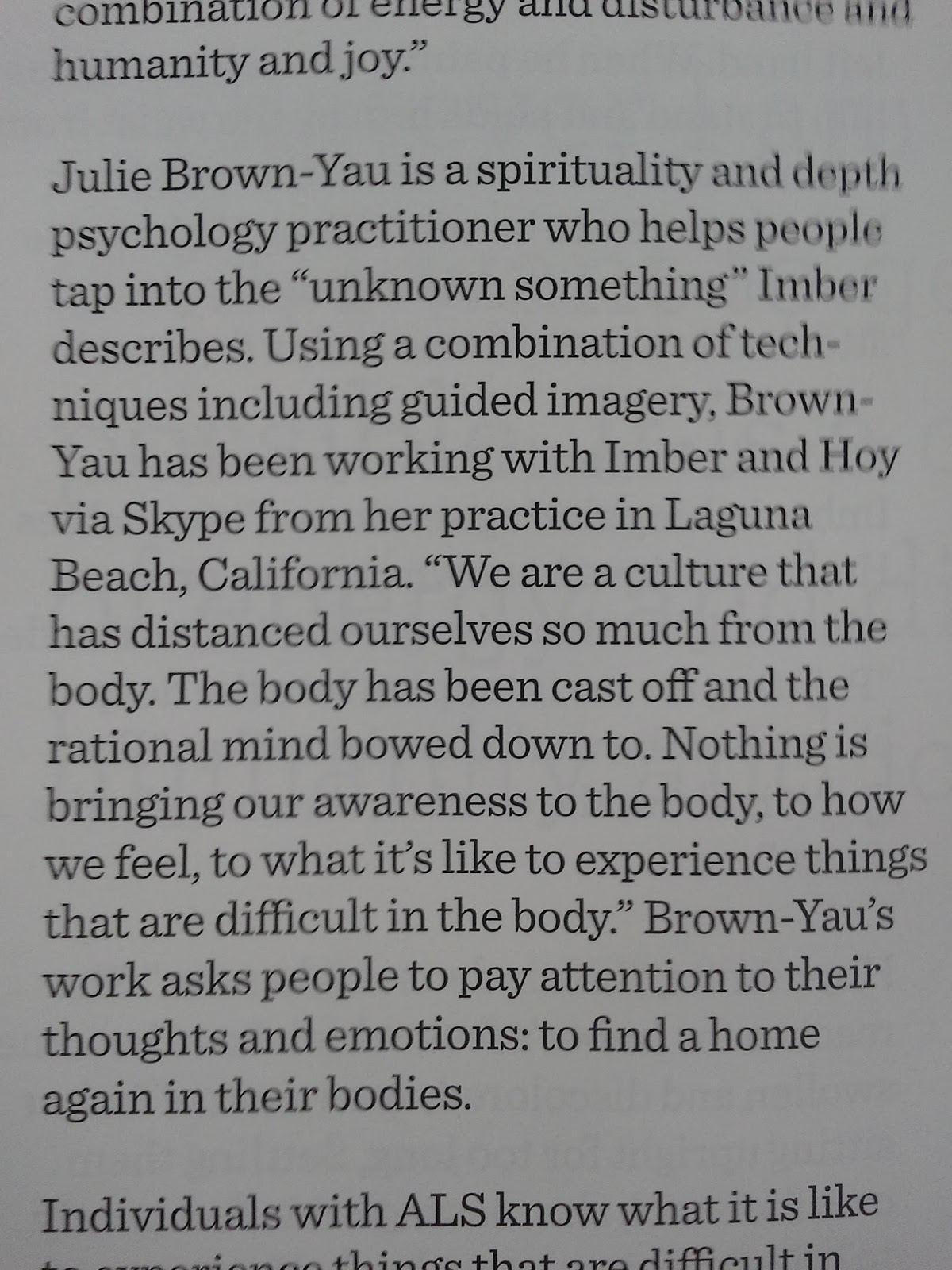I love food. I was raised in a foodie family. My Dad worked as a line cook throughout college and has now turned that love of cooking into a love of trying new foods and relying on his weekly sojourn to the local farmer's market to stock up on fresh fruits and veggies. My Mom is a vegetarian and was the manager of a health food co-op on her college campus and today relies on the local health food store and her extensive organic garden for most of her veggies.
One of my first childhood memories is actually a smell, the smell of a health food store. To this day I close my eyes when I walk into a health food store and smile, the waves of fresh fruit and veggies fill me with childhood glee. I grew up in health food stores. The alternative food co-op my Mom managed in college I can still smell it, I clearly remember the large vats of guac, the whole-wheat bread, sprouts-laden, tempeh sandwiches wrapped in wax paper, fondly.
I knew "clean eating" since I was born. My favorites as a child were always veggies, eating whole tomatoes fresh from the garden like apples and fondly calling broccoli "trees" and eating them raw. Mom and Dad made a concerted effort to not introduce me to to artificial ingredients and sweeteners, so I never harbored an affinity for those flavors as I grew up.
Throughout high school I began to make more independent eating choices, often thinking of food more as the fuel for the many, many hours dedicated to school sports. I often didn't think of what I was eating, just that I needed to fill the caloric void of sweating and running around the whole afternoon.
At some point in high school I identified a sensitivity to bread. I noticed that if I ate too much I would get lethargic and constipated. So I quickly learned that I had to limit myself to 3 pieces of bread a day for only 3 days. At which point I would need a break and would resume eating bread for the next 3 day cycle. I never really liked pasta. I always felt so uncomfortable. I remember carbo-loading as a team the night before a big game. We would all get together and have a huge pasta feast with garlic bread. I gathered the point was to get energy from the carbs for the game the next day, but I always felt uncomfortably full and bogged down.
Emotionally miserable for the first 2 years of college, I turned to cooking and working out to fill the time between the many classes of my double major. I was excited by food, by trying new recipes and sharing them with friends. I was able to make my own food choices, from shopping at the local farmer's market to avoiding the foods that made me uncomfortable, I causally identified my food allergies. By simple avoidance, I learned to manage a balance of food effecting me positively more often than negatively.
Part Deux - "The Burrito Stuck in My Throat" Feeling
I moved across the country after college. Soon thereafter I met my boyfriend and subsequently moved in with him. We went through the typical honeymoon phase of eating, drinking and laying around the house too much. I knew the old adage, "A way to a man's heart is through his stomach," while true to a point, I took this opportunity to really wow him with my extensive cooking abilities, making all the yummy, comfort man-food, "ways to his heart" food I could dream up, among the plenty of lazy nights of pizza and beer.
The first few years of our relationship were the "honeymoon eating phase," I was always trying new recipes, looking for something new, something to send him into a "I love her so much because my belly is happily fully of yumminess" food-love-coma, which of course lead to my inevitable weight gain because I was busy falling in love, as was he, but somehow he managed to not gain more than 5 lbs. (men!)
So I kicked it into high gear, stopped eating like him, extra cheese, extra sauce and upped my workout routine. I figured like in the past, if I went back to my regimen of 3 glutenous products at 3 days at a time everything would be back to normal, but for some reason it didn't work this time. I continued to gain weight and regularly was uncomfortable. I chalked it up to not giving it my all. I really beat myself up too, I thought I wasn't trying hard enough, cheating too often, overindulging too frequently and too busy falling in love. But working out was excruciating. I ached, I had overly labored breathing, I really would drag ass getting myself up and fully pushing myself. My bowels movements were irregular, both in frequency and quality, my skin would break-out and I was constantly irritated. All of these were symptoms of my life I thought. I thought the relationship wasn't working which was causing emotional and mental stress, I was miserable at my job, which compounded the whole thing, hence the breaking out. I was in a rut and I blamed it on my life, without thinking much about what I was eating.
So I found a new job, which greatly helped with that added stress, and eased the strain on my relationship and general overall sense of well-being, but I couldn't lose the constant discomfort; the "burrito stuck in my throat" feeling, (quite literally it left like something was lodged from my chest to the back of my throat, that no water, clearing my throat or swallowing could get rid of) the constipation, then the diarrhea and gas, the irritability nor the weight.
Then seasonal allergy season came. While I have always been congested and had sinus related issues, never had my allergies been so bad since I moved to Maine. I think it is the plethora of greenery and general inhabitance around a much larger nature than in an urban environment. This was the worst season ever; miserable, eyes watering, sneezing, face draining (which is what I call it, because it literally feels like every orifice has ooze running out of it) and overall meh-ness. My allergy symptoms compounded by my food allergy symptoms made me feel like my body was giving out on me, at the ripe old age of 25! In order to function and breathe properly (refusing to taking seasonal allergy drugs, as I refuse to ingest most prescribed things) I relied on my inhaler for temporary relief.
Running my usual 3-mile loop with our dog was unbearable, I would use my inhaler multiple times and eventually I couldn't make the loop without walking 3/4 of it and even that was hard. While I was diagnosed with asthma in college, I never used my inhaler, I always had it "in case" but often it expired before I used it more than once or twice. In a 2 month span I went through 2 inhalers and clung to it's momentary relief it provided me. There were many sleepless nights, waking up startled and gasping for air, afraid to go back to sleep because I thought I might suffocate if I laid back down; I knew something was seriously wrong.
Identifying Being Gluten Intolerant, Part 3 of My Journey
I stopped wanting to eat because everything I ate made me uncomfortable. I assumed I was allergic to everything because anything I ate caused digestional discomfort or respiratory issues. My body and joints ached. I was irritable. I was either constipated or had diarrhea. My back, hips, feet and parts all hurt. I figured enough was enough I was only 25 there was no reason I should feel like an old woman.
I went and saw a chiropractor, thinking I was really tight and that my muscles and tendons needed release, which would hopefully help with my breathing. I also scheduled regular massages. I went and saw my doctor, an alternative nurse practitioner. She checked out my basics, ran some blood tests, everything appeared fine. She offered to go further, take x-rays, endoscopy/colonoscopy, refer me to a allergy specialist, with lack of health insurance I figured those steps weren't necessary, nor affordable.
I spent over an hour in her office talking about my symptoms. She asked about my seasonal allergies, if I wanted medication or if I had seen an allergy specialist to know exactly what I was allergic to. She asked about my eating habits. I alluded to the probability of being gluten intolerant with my mom being gluten intolerant and having a sensitivity to gluten products since I was 10. She asked if I was also eating a lot of tomatoes, which I thought was a weird question, but answered yes. We are avid gardeners and it was early fall, so our tomato harvest was aplenty. We were consuming tomatoes most meals of the week. She told me that tomatoes can trigger allergic responses in those that are sensitive, that there are similar compounds in tomatoes as there are in environmental allergens.
Already not wanting to eat anything, she suggested an elimination diet. We talked about the steps and discussed the foods to avoid for a month, especially during the horrendous fall season of allergy-hellness. We scheduled a check-in appointment a few months down the road to see how and if this course of action would help. (A little aside about doctors, while I have chosen to see a alternative nurse practitioner, the choice of who handles your medical care is personal, however I would highly recommend a doctor that talks to you about nutrition and your food habits before a prescribing a pharmaceutical course of treatment. The value of the importance of food and healthcare are often disconnected and I am eternally grateful that my doctor spoke to me about food as treatment first).
For the next month I did my version of an elimination diet. Having a mom that is a health nut and worked in health food stores for years, I referenced her knowledge as well as a little searching online. There is extensive and very strict elimination diet regiments online, but I applied a little of my body knowledge and ate the foods I knew did not cause reaction for me. I ate certified organic, gluten free brown rice, organic dark leafy greens, organic yogurt, homemade granola (I could control the ingredients this way, see recipe here), fruits without pits and most vegetables, but I avoided the nightshade family, ie potatoes, tomatoes, peppers, etc. for a month. I ate none of the common food allergens, no dairy (except yogurt), no gluten/wheat products, no nuts and some extras, no coffee, no additional cooking herbs and spices and no alcohol.
Within a week I stopped using my inhaler multiple times a day, I started to feel slightly less irritable, my bowel movements were less erratic and slowly but surely my body ached less and less. At the start of my third week I felt almost back to my healthy normal and was dying for a new flavor in my diet, so I added eggs. Eggs are on the list to avoid for food allergy triggers, but I had never had any issue with them before, so I added them and had no problem.
How the elimination diet works is after the month, you slowly introduce typical allergy inducing foods, 1 at a time, 1 time per week. The theory is that if you introduce one food at a time and then wait a week, your body will respond positively, negatively or neutral to that food. It is crucial to allow a week's time in between to properly identify and process the new food, but with a clear system, allergy inducing foods reveal a reaction often within days of consumption. So I started with different veggies to add diversity to my limited intake. Then it was fruits, of which I identified an allergy to stone fruits. Then dairy, all of which seemed fine. Last was gluten. I just had this innate feeling that it was gluten, so while I didn't consume gluten to be sure, I never added it back into my diet and 2 years later I am symptom free.
All in all the process took 4 full months from the start of the elimination diet to the identification of what foods my body could digest properly. If anything, an elimination diet helps you learn to listen to your body. Our bodies tell us the things it likes and doesn't. Discomfort, bloating, gas, irritability, joint pain, irregular bowl movements, distended belly, skin dryness/itchiness, etc. are all signs that something is not happy on the inside.
Even now I can identify if I have eaten something that I am not digesting properly. About a year ago I identified I was lactose intolerant as well, which often comes in conjunction with gluten intolerance (bummer, I know!) but it is what it is. I noticed that anytime I ate a decent amount of lactose I would get the most horrendous, painful, smelly gas, and by a simple process of elimination I identified the culprit. On the very, very rare occasion I get respiratory issues from something I ate, which does happen, especially during environmental allergy seasons, I strip my diet down to the basics and maintain a modified elimination diet for the months of April and September. This works for me, I don't need to turn to a prescription, which was what I was avoiding all along. Even when my sinuses go haywire, I still would rather adjust my diet and turn the hypoallergenic air-purifiers on in the house, than take an antihistamine or use an inhaler; of which both, for me, are for worst case scenarios only.
This is my journey and it worked for me, it might not necessarily work for you because everyone responds differently. So find what works for you, but realize your body is telling you things, if you listen. So tune in and hopefully have happy guts.
Rachel Brathan
rachelbrathen.com
@yoga_girl on Instagram
Good eats and homecooking

This face
Maine



























